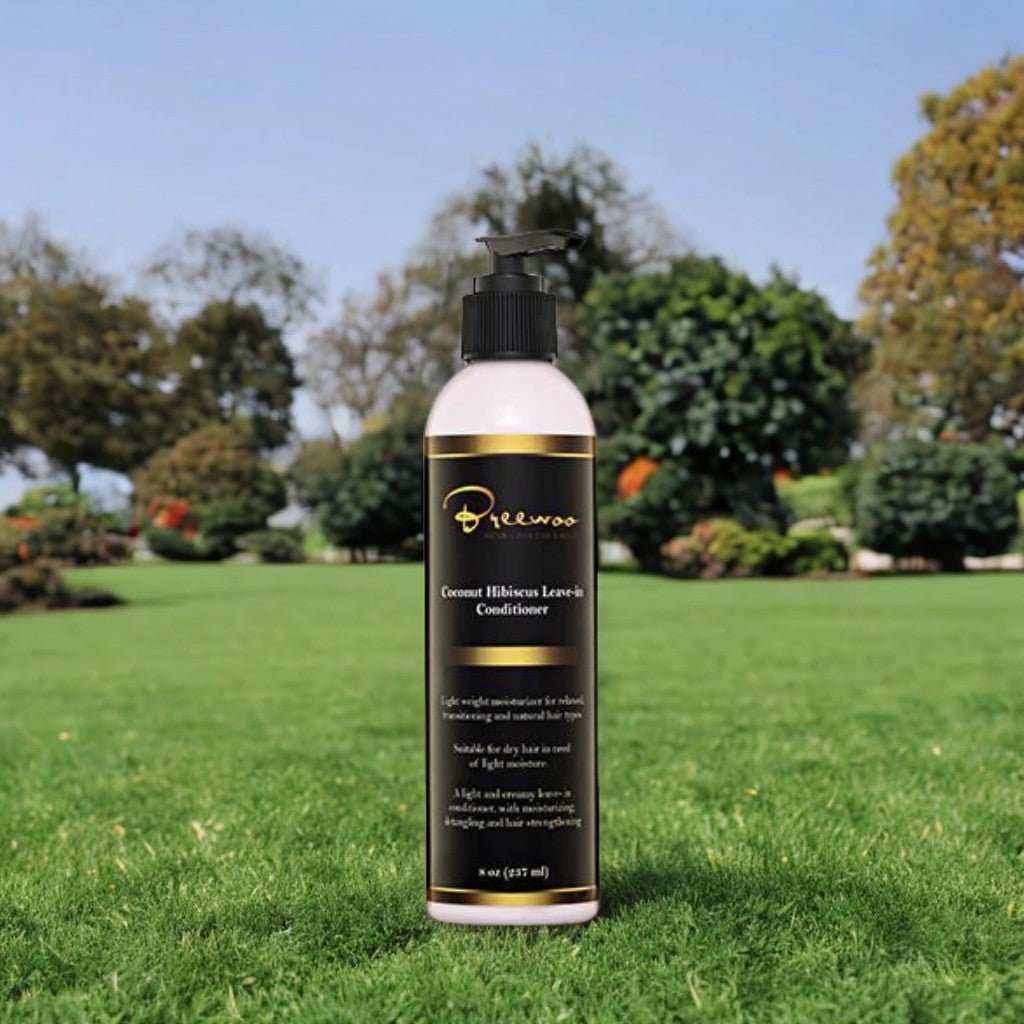
Coconut Cream vs. Coconut Oil: Which Is Better for Your Hair?
Share
In the realm of natural hair care, coconut-derived products have carved a niche for themselves, celebrated for their nourishing properties and versatility. Among these, coconut cream and coconut oil stand out, each boasting unique benefits for hair health. As consumers increasingly seek natural alternatives to chemical-laden products, understanding the distinctions between these two coconut derivatives becomes essential. This article delves into the nuances of coconut cream and coconut oil, comparing their properties, benefits, and suitability for different hair types to help you make an informed choice for your hair care regimen. You can explore a wide range of premium hair care products infused with coconut cream and oil at Breewoo's online store.
Understanding Coconut Cream and Coconut Oil

What is Coconut Cream?
Coconut cream is a thick, rich substance extracted from the flesh of mature coconuts. The process involves grating the coconut meat, blending it with water, and then straining it to separate the cream from the milk. The resulting cream is high in fat content, giving it a luxurious texture and making it a potent moisturizer. Nutritionally, coconut cream is rich in saturated fats, particularly lauric acid, and contains vitamins such as C, E, B1, B3, B5, and B6, along with minerals like iron, selenium, sodium, calcium, magnesium, and phosphorus.
What is Coconut Oil?
Coconut oil is derived by pressing the oil from dried or fresh coconut meat. There are two primary types: virgin and refined. Virgin coconut oil is extracted from fresh coconut meat without the use of high temperatures or chemicals, preserving its natural aroma and nutritional content. Refined coconut oil, on the other hand, is made from dried coconut meat (copra) and undergoes processing to remove impurities and odor. Coconut oil is predominantly composed of saturated fats, with a high concentration of lauric acid, and is known for its antimicrobial properties and ability to penetrate hair shafts deeply.
Nutritional Comparison
Fatty Acid Composition
Both coconut cream and coconut oil are rich in saturated fats, particularly lauric acid, which constitutes about 47% of their fat content. Lauric acid is known for its antimicrobial properties and its ability to penetrate the hair shaft, providing deep nourishment. While coconut oil contains a higher concentration of fats due to its pure oil composition, coconut cream offers a balance of fats and water, making it a more hydrating option.
Vitamins and Minerals
Coconut cream boasts a broader spectrum of vitamins and minerals compared to coconut oil. It contains significant amounts of vitamins C, E, B1, B3, B5, and B6, which are essential for hair health, promoting growth, and preventing hair loss. Additionally, the presence of minerals like iron and magnesium in coconut cream contributes to strengthening hair strands and improving overall scalp health. Coconut oil, while rich in vitamin E, lacks the diverse vitamin profile found in coconut cream.
Benefits for Hair
Coconut Cream Benefits
Coconut cream serves as an excellent deep conditioner thanks to its high-fat content and creamy consistency. It provides intense moisture, making it ideal for dry and brittle hair. The vitamins and minerals present in coconut cream nourish the scalp, promote hair growth, and add a natural shine to the hair. Its hydrating properties help reduce frizz and prevent split ends, resulting in smoother and more manageable hair.
Coconut Oil Benefits
Coconut oil is renowned for its ability to prevent protein loss in hair, a common cause of hair damage. Its molecular structure allows it to penetrate the hair shaft deeply, strengthening the hair from within. Regular application of coconut oil can lead to reduced hair breakage, improved scalp health, and enhanced hair growth. Its antimicrobial properties also help in combating dandruff and other scalp infections, ensuring a healthy environment for hair to thrive.
Application Methods
Using Coconut Cream
Coconut cream can be used as a hair mask by applying it generously to the scalp and hair, leaving it on for 30 minutes to an hour before rinsing. This deep conditioning treatment can be done once a week to restore moisture and vitality to the hair. Additionally, coconut cream can be used as a leave-in conditioner by diluting it with water and spraying it onto the hair, providing continuous hydration and frizz control throughout the day.
Using Coconut Oil
Coconut oil is versatile in its application. For a pre-wash treatment, warm the oil slightly and massage it into the scalp and hair, leaving it on for at least.
Conclusion
So, coconut cream vs coconut oil—what’s the final word? Both are champions in the world of natural hair care, but their strengths lie in different areas. Coconut cream is a hydration hero, ideal for conditioning and nourishing your hair with essential vitamins and moisture. Coconut oil, on the other hand, offers deep penetration, protein retention, and scalp-cleansing power. Whether you go with one or combine both depends on your hair’s unique needs. Either way, your strands are in for a tropical treat.
FAQs
1. Is coconut cream or coconut oil better for hair growth?
Both coconut cream and coconut oil support hair growth, but in slightly different ways. Coconut oil penetrates the hair shaft, preventing protein loss and strengthening hair from within. This makes it particularly effective for stimulating growth over time. Coconut cream, on the other hand, is packed with nourishing vitamins and minerals that condition the scalp and improve follicle health. For best results, alternating between both can offer comprehensive care.
2. Can I use coconut cream and coconut oil together on my hair?
Absolutely! Combining coconut cream and coconut oil can create a supercharged hair treatment. Coconut cream hydrates and conditions, while coconut oil seals in moisture and protects the hair shaft. Use the cream first as a mask, then apply a thin layer of coconut oil to lock in the benefits. Just be sure to rinse thoroughly to avoid buildup.
3. Is coconut cream good for weight loss or just hair care?
While coconut cream is sometimes included in low-carb diets like keto due to its fat content, it's calorie-dense and should be consumed in moderation if weight loss is your goal. In hair care, however, it shines with its ability to hydrate, soften, and strengthen strands. So yes—great for hair, but don’t overdo it in your diet if you’re watching your weight.
4. How often should I apply coconut oil or cream to my hair?
For most hair types, applying coconut oil or cream once a week is sufficient. If your hair is extremely dry or damaged, you might benefit from twice-weekly treatments. For oily hair types, once every two weeks might be better to prevent buildup. Always tailor the frequency to your specific needs.
